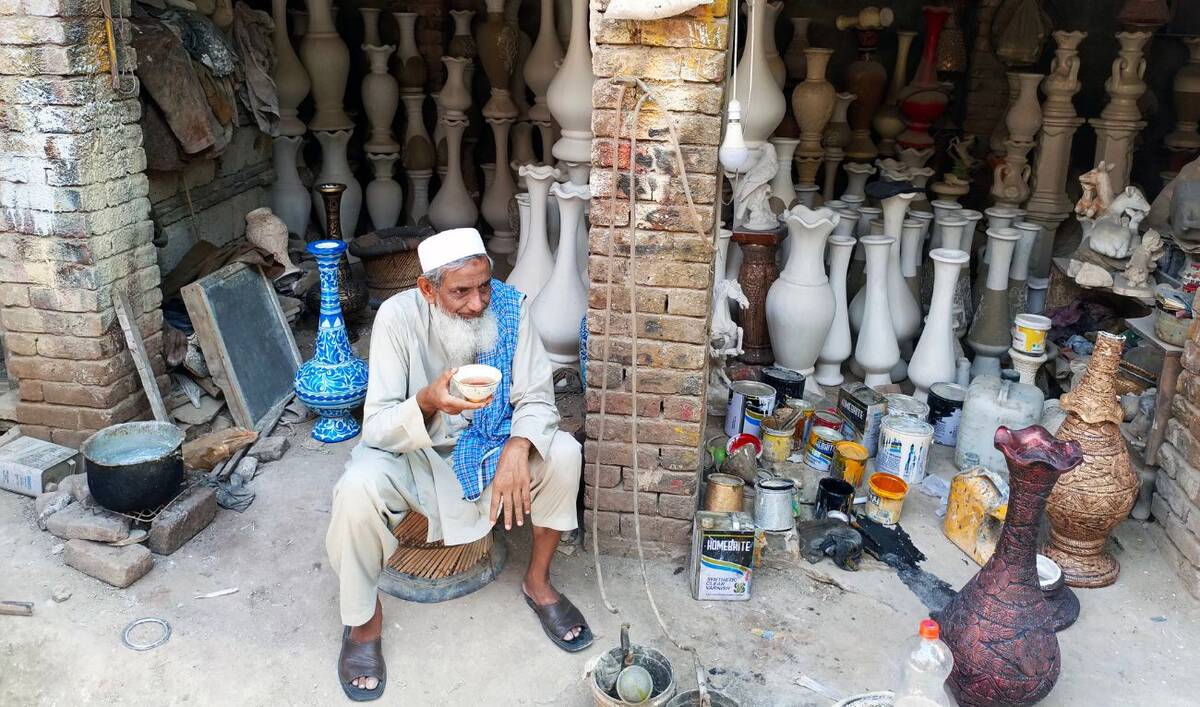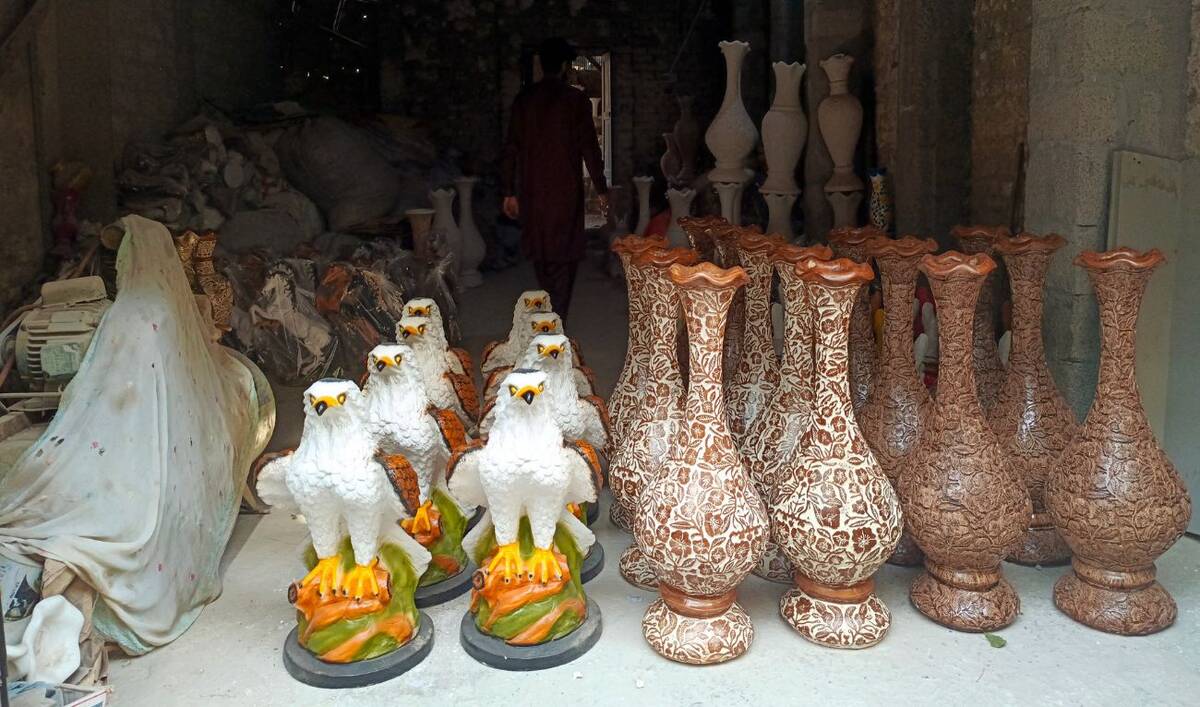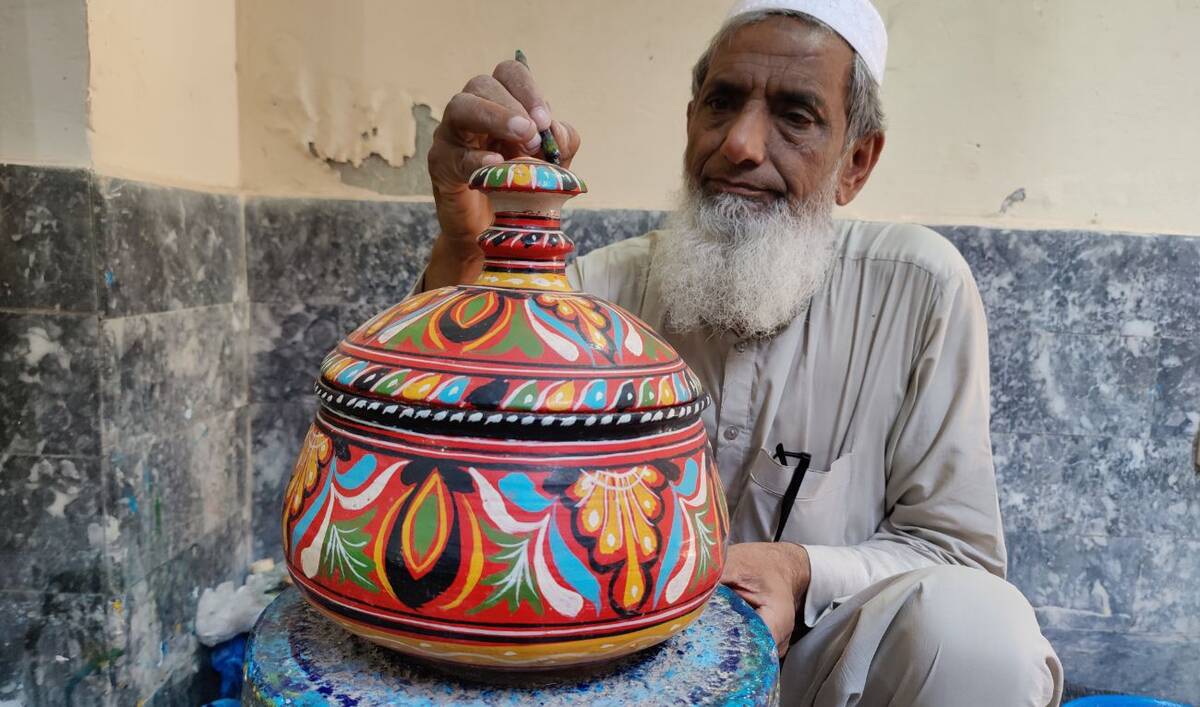KARACHI: For most of the year, Karachi’s Civil Lines neighborhood remains serene, a peaceful urban retreat of high-rise residential apartments and markets.
But as Eid Al-Adha approaches, the quiet streets start bustling with activity as makeshift stalls and tents pop up, each equipped with soft bedding, special lights and fans in the service of special guests – expensive or ‘premium’ sacrificial animals.
The prized animals, whose price can range between $3,000 and $11,000, are mostly raised on cattle farms outside the city, and moved to the Civil Lines neighborhood in the weeks ahead of Eid, giving the area a festival-like atmosphere.
Many people in Pakistan like to buy expensive sacrificial animals on Eid, as purchasing larger or more premium animals is seen as a mark of prestige and generosity. The preference for costly animals is also influenced by the desire to fulfill the religious obligation with the best possible offering.
“There is no price for passion,” Muhammad Mustafa, a student at the Institute of Business Administration whose family is associated with the cattle business, told Arab News.
“Everyone performs this [ritual] according to their budget in my opinion, so the prices of animals in our area can go above Rs2 million [$7,180] or Rs3 million [$10,770].”
These prices are sharp for Pakistan, where after months of record inflation, many will be struggling to afford even regular sheep at prices starting from around $350. But the expensive animals are also the ultimate symbol of social prestige in a country where the GDP per capita does not exceed $1,600.
“FUNFAIR”
Karachi, a city of over 20 million people, hosts the country’s largest cattle market on its outskirts, where animals from across Pakistan are put up for sale, as well as 21 other smaller bazaars.
However, what sets Civil Lines apart from other neighborhoods is not just the availability of expensive animals but also the large number of people who raise high-value breeds on farmhouses.
Mustafa is one of those who strikes deals with cattle farmers in advance, providing them with a calf, which is raised for a year or two until it becomes eligible for sacrifice, a determination based on the count of its teeth— two or more.
“It has four teeth, so we raised it for almost two years. It grabs its proper strength, catches its life, catches its round shape, so it feels attached to the heart, so we people sacrifice it,” he said as he gestured toward his cow that neighbors and friends had come to call “Black Beauty” and which is valued at Rs1 million ($3,588).
Connoisseurs also hire caretakers to look after the animals and provide them with customized and specially prepared feed and shelter in waterproof tents equipped with fans, cushioning and special lighting.
Various local and international breeds of animals can be found in Civil Lines, including Sahiwal, Australian and Sibi breeds, with visitors stopping to take selfies with the beautiful cows and goats.
“It’s about half-past midnight, and people here descend with their families after 10 o’clock and also serve their animals,” said Maaz Liaquat Abdullah, who works in the construction business. “The whole place becomes a funfair,.”
Abdul Rauf Shivani, a banker, attributed the popularity of high-priced animals in Civil Lines to the community’s “deep pockets.”
“What people do is basically they try to bring in the animals for sacrifice and they also try to give comfort to animals and make sure that they are actually in a very safe area,” Shivani added.
And while adults in the area typically buy expensive cows, children often opt to raise goats.
One such kid was Mohammad Yahya, 6, who said he had raised his male goat at a farmhouse in Mirpur Khas in Sindh and affectionately called him Chanchanu.
“He runs very fast, he doesn’t come under control,” Yahya said as he placed some grass in front of his goat.
Around him, children led their animals along the streets.
“Most of the population living here is from the Memon community,” said Abdullah, the construction business professional, “who have the love for animals in their genes, especially the love for sacrificial animals.”




















